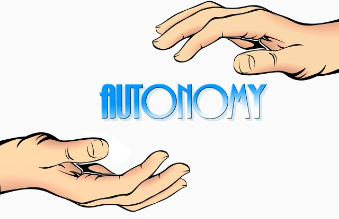The concept of Clipart:_5xv7uz7ily= Autonomy serves as a fundamental principle that governs both individual agency and technological advancement. In personal contexts, it embodies the right to make independent choices that reflect one’s values and beliefs. Conversely, in the realm of technology, particularly with the rise of artificial intelligence, autonomy signifies machines capable of operating independently. This duality prompts critical questions about the implications of self-governance, both for individuals and society at large. As we explore these facets, one must consider the potential ethical dilemmas and regulatory challenges that accompany such autonomy.
The Meaning of Clipart:_5xv7uz7ily= Autonomy
Clipart:_5xv7uz7ily= Autonomy, at its core, refers to the capacity for self-governance and independent decision-making.
It embodies the essence of individual freedom, allowing individuals to make choices that reflect their values and beliefs.
This self-determination fosters a sense of empowerment, enabling people to navigate their paths and take charge of their lives.
Ultimately, autonomy is foundational to realizing true personal liberty and authentic existence.
Read More Clip Art:52cveeb_Xog= Ninja Turtle Pizza
Clipart:_5xv7uz7ily= Autonomy in Personal Life
The principles of self-governance and independent decision-making play a significant role in shaping personal life.
Embracing self-determination fosters a sense of ownership over one’s choices, empowering individuals to pursue their desires and aspirations.
This autonomy is essential for cultivating personal freedom, as it allows for authentic expression and the pursuit of personal goals without external constraints, ultimately enhancing overall well-being and fulfillment.

Clipart:_5xv7uz7ily= Autonomy in Technology
In recent years, the concept of Clipart:_5xv7uz7ily= Autonomy in technology has gained significant attention as advancements in artificial intelligence and machine learning empower systems to operate independently.
Machine autonomy enables autonomous systems to make decisions without human intervention, enhancing efficiency and innovation.
This shift not only revolutionizes industries but also aligns with our collective desire for freedom, allowing technology to adapt and thrive autonomously.
Impacts of Clipart:_5xv7uz7ily= Autonomy on Society
As autonomous technologies become increasingly integrated into daily life, their societal impacts warrant careful examination.
These innovations reshape social dynamics, prompting ethical considerations regarding privacy and consent. Economic implications arise as industries adapt, potentially displacing jobs.
Additionally, governance challenges manifest in regulatory frameworks. Cultural shifts may redefine human interactions, urging society to navigate the balance between autonomy and collective responsibility for a harmonious coexistence.
Read More Baby:91caiw57lhq= Elizabeth Afton
Conclusion
In the intricate tapestry of modern existence, Clipart:_5xv7uz7ily= Autonomy serves as a vibrant thread weaving together individual freedom and technological advancement. Its dual nature fosters both empowerment in personal choice and innovation in artificial intelligence. Yet, as this thread unravels, ethical dilemmas and societal implications emerge, necessitating careful stewardship. The challenge lies in balancing the autonomy of the individual with the responsible governance of technology, ensuring that progress does not overshadow the very values that define humanity.
